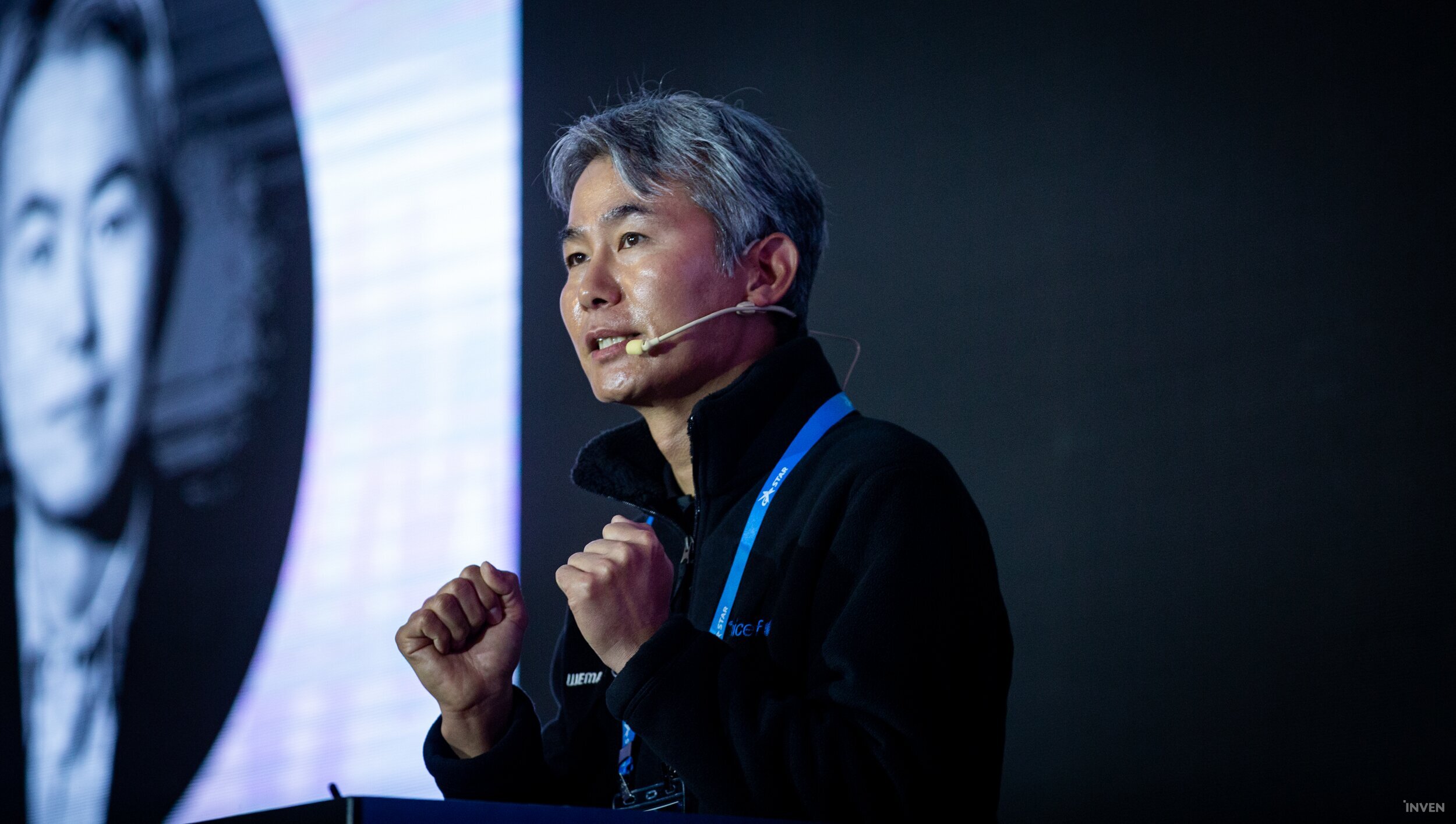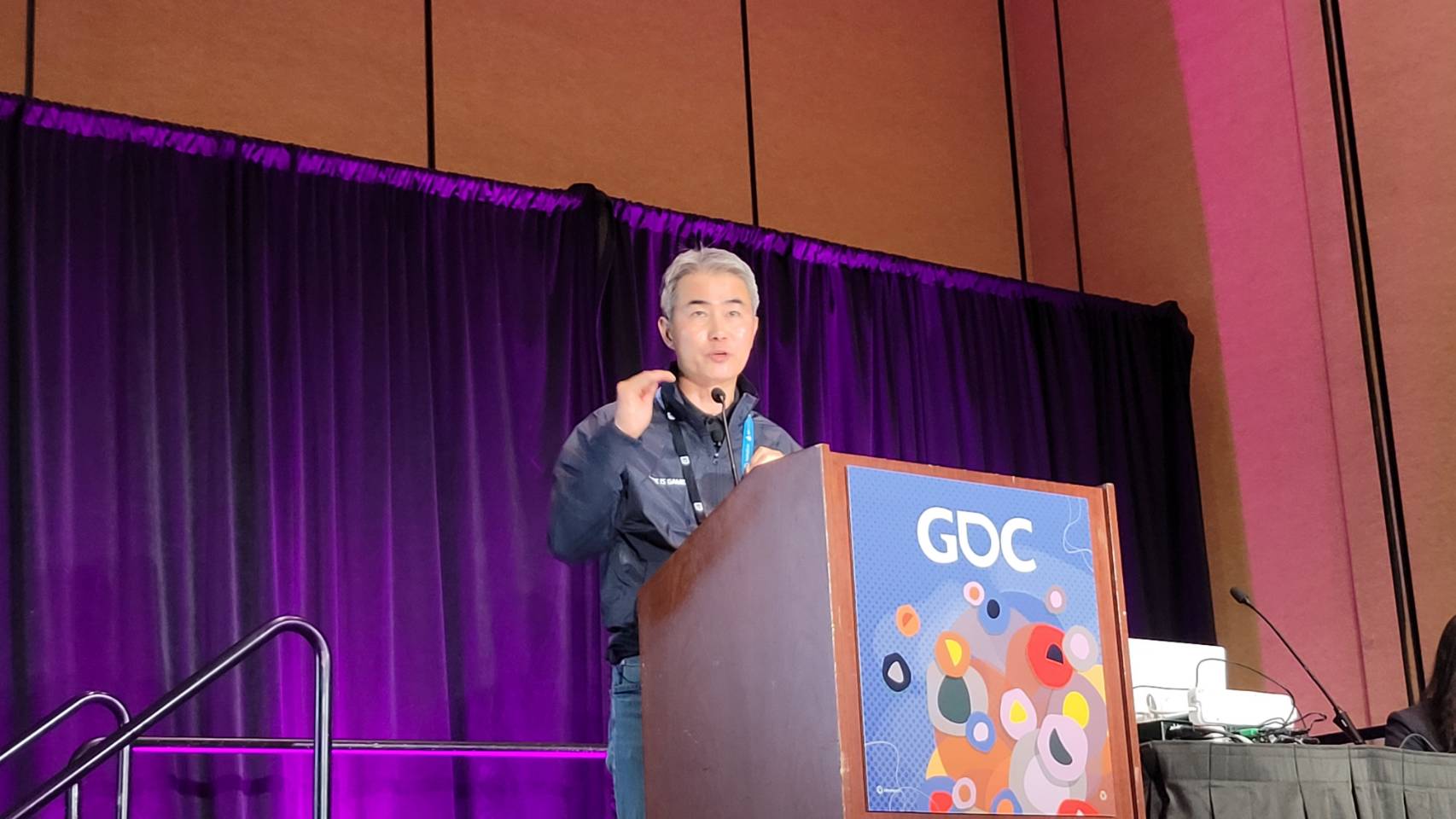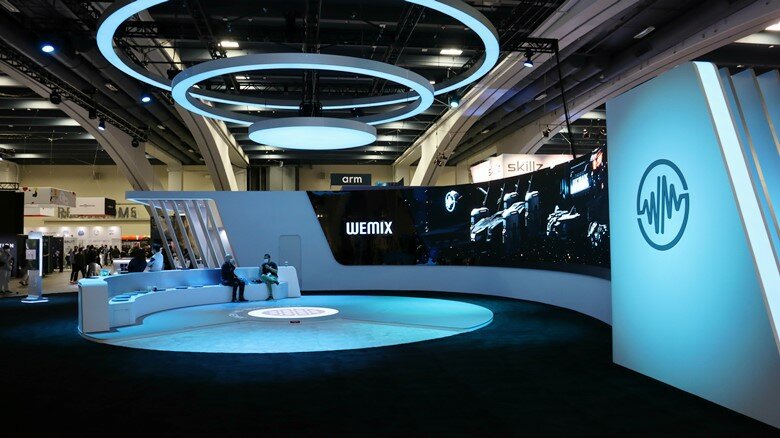
The interview at GDC 2023 with WeMade CEO Chang “Henry” Hyun-guk was held in a much more hectic environment than last year when the GDC was held in a smaller capacity. The volume wasn’t the only reason it was more hectic. The year 2022 was harsh on WeMade — there weren’t any cases where a cryptocurrency was delisted and came back, so when it was decided, some people in the industry mentioned the end of WeMade fantasy, which was continuing for several years.
It’s a topic that can be discussed since it recovered its value, but it was WeMade’s biggest crisis ever. After all, Wemix revived like a phoenix rising from the ashes, and Henry Chang recovered his smile. People couldn’t help but pay attention to what they had been through.
Before the interview started, Henry said, “A good farmer doesn’t take a break in the winter.” He agreed that last year was difficult, but asserted that they were able to lay the groundwork for more development. “It was a difficult year, but we overcame it, and our principle hasn’t been broken.” Henry had a long talk, but that was the key point. Afterward, the reporters started to ask questions.
You should have met many western game developers at GDC. Most of the games onboarded on Wemix Play don’t really get along with the western gamers. Were there any games you’ve been keeping an eye on? What do you think about the western gamers’ low level of faith and undervaluation of blockchain games?
I discussed this in my session yesterday as well — there’s a misunderstanding with blockchain games. And I have grounds to support the misunderstanding.
The major proposition is that ‘blockchain games are not fun’. There’s nothing you can do about it. The first game that ever implemented P2E, Axie Infinity, is really not fun. This is where the misunderstanding started. Also, the Mir series is an old P2W game, and whenever the Mir series’ outcomes are revealed, many ask me, “Isn’t it possible because it’s a P2W game?”
Frankly, rather than Korean games, western games have a proper structure to implement tokenomics through blockchain technology. Since the Mir series has a P2W quality, it isn’t properly combined with blockchain — there is a limit in the implementation.
However, this misunderstanding can be a chance for us. If there is no misunderstanding, western gaming companies will be more interested in blockchain games, and potential competitors can increase drastically. The misunderstanding would be resolved in time, but wouldn’t it be more beneficial to earn some time to show more presence in the gaming industry in the future?
The lawsuit that was held in Singapore regarding WeMade, Actoz, and Shanda has been settled. What do you think about the result?
It’s been six years since there was a conflict for the first time. The conflict between Actoz and us is due to what we each assert, and our positions are different, so we can’t help it. The result is to arbitrate, and this verdict has never been reversed.
Actos discusses jurisdiction over the service, a topic that was already addressed in the arbitration, which was dismissed. Actoz could seek to vacate the arbitration in a Singaporean court, but I don't think that's likely, as the case has already been litigated to the smallest detail over the course of six years.
While some may speculate that the case is being litigated in the courts of three different countries - Korea, China, and Singapore - and that we don't know what will happen if there are different rulings, this is not the case. China, Korea, and Singapore are all suing for different reasons, and we are quietly waiting for the judgment to be enforced.

In your session held on Tuesday, you explained the intergame economy between Mir4 and Mir M. The example of Mir4 and Mir M is quite simple. How are you planning the advancement of intergame economy?
As a blockchain gaming platform, we are currently in a commanding position. However, the intergame economy is still a work in progress, and we believe that the current level is only 1% of what the ultimate intergame economy will look like.
The intergame economy between Mir4 and Mir M is all about redeeming Mir4's currency, Draco and Hydra, for Mir M's currency, Dogma. And it works well enough.
Personally, I believe that all in-game goods and items will eventually become NFTs. Even if there isn't a single token for each game, the creation of an intergame economy will lay the groundwork for gamers to utilize all the assets they can earn in one game in other games. This could be a game based on an existing token or a completely new game.
Permission is not required for linking Web3 games or modifying contract periods. The basis of the intergame economy is that you can freely service your game and register it in the form of 'Permissionless', which allows you to connect it with other games without separate permission. I think that various games will naturally be created, and sophistication will follow in the process of connecting these games.
You've made an argument against the view that blockchain games are not fun, but can you explain it more precisely?
The perception that blockchain games are not fun is still prevalent. My take on this is that blockchain doesn't make games better or worse. Adding blockchain to a fun game doesn't make it less fun, and vice versa, adding blockchain to an uninteresting game doesn't make it more interesting. In the end, it's the game itself that matters.
But the reason this misconception is so prevalent is because, as I mentioned earlier, Axie Infinity, the first to claim P2E, wasn't exactly a fun game by any means. And in this time of misunderstanding, we're focusing on the present, where others haven't yet jumped on the bandwagon, and preparing for what's next.

Even though Wemix has managed to relist after being halted, it's hard to say that market confidence is high yet. What are your thoughts on this?
100% reliability seems like a stretch. How can we claim 100% reliability in the modern world with so many variables? However, if we limit ourselves to the current situation, we believe that the absolute measure of token price is telling the story without us having to claim reliability. Currently, the price of Wemix is not much different than it was before the halt.
Over the past year, we've been through a lot, become stronger for it, and learned a lot from our past failures. I think trust in a company is a value that can only be earned by how well the company performs. Last year was so difficult, and I don’t think this year will be the same.
The 4Q of last year was not particularly strong. What are your plans for the future?
As some of you may know, we don't issue guidance. If we have a good year, we're happy, but let's be honest, there might be a better opportunity that comes along. There's a quote in the book “Jack: Straight From the Gut” by Jack Welch, a former GE executive. Only fools would have a year's worth of business plans written out in advance.
So, while we do plan ahead for expenses, we don't do a detailed business plan. How can you plan a year into the future when you're doing something that no one knows about in a completely new space? It's not going to make sense anyway.
But to answer your question, last year, we were losing almost 7 billion(KRW) per month, and this year, I think we're going to be in the black as early as this quarter. We also have a new game coming out in April, so we should be able to anticipate being in the black for all of 2023.
What was your personal reaction to last year's trading halt?
If an event happens and it breaks you down or brings out the worst in you, then it's definitely a bad thing. But if you're better off after the event, it's not necessarily a bad event.
We also know from experience that growth is not a steady process that is directly proportional to time. There are many twists and turns, downturns, and ups and downs. In the case of last year, I think it was an undervalued year compared to what we did, and I'm glad that we became stronger and grew as a result, but I also wonder if it could have been an opportunity for the Korean virtual currency market to improve its health. Just recently, there was an announcement about managing the coin market.
In the grand scheme of things, this is part of the evolution of the marketplace, and I'm sure it would have happened to someone at some point.

What do you want to say to the shareholders of WeMade who have been through this together?
I don't have a lot of personal interaction with shareholders, but at the company level, we talk to them all the time. We have a shareholder meeting coming up next week, and I'm sure we'll have a Q&A session where I'll be available for an hour or two to answer any questions.
Sustainability is a very important value to us, and it takes a lot of determination and conviction to maintain it, which is not easily altered by external circumstances. We understand the reactions of our shareholders, but we think it's more credible to show that we stand by our convictions than to react to them all.
Sometimes you need to take a long breath when you look at the world. The end of last year was a very difficult time, but when you look at the last five years and the next three years, what happened last year may not be that big of an event.
This is your second GDC as a Diamond Sponsor after last year. Compared to last year, there were a lot of Korean companies participating this year, and there were quite a few blockchain-related talks. What are your impressions of this year's GDC?
I don't think you can look at everyone in your industry as a competitor. When I first started at Nexon in '96, it was the day we first launched The Kingdom of the Winds through Chollian. Then Lineage came along and ushered in the early days of online gaming, and I don't know if they were ever really rivals. In fact, I'd argue that the entire gaming industry, including The Kingdom of the Winds, has benefited from the rise of Lineage, as the overall pie has gotten bigger.
GDC 2023 seems to have a similar feeling. The whole blockchain seems to have moved forward about an inch. It feels like Com2Us, Nexon, and Netmarble have come together to push the barriers and move forward little by little. If other companies' Web3 games do well, it's a good situation for us. The more interest in the industry, the more games will be onboarded to WeMix Play.
However, the public perception still seems to be in place. I felt that there were still misconceptions about blockchain games.
AI seemed to be the trend at GDC this year. Blockchain seemed to take a bit of a backseat. What do you think?
With so many developers in attendance, there's a wide range of development topics discussed at GDC, and I agree that AI is the current meta and that it's a topic that's gotten more attention than blockchain. Considering the potential and performance AI technology has shown recently, anyone would be curious about how it would change the industry when adopted into the gaming industry. It holds a lot of promise.
However, blockchain is still a topic that is being discussed a lot, and as I said, we've taken a small step forward. I'm hoping that maybe next year, it will be a bigger deal. WeMade will be at GDC again next year, so maybe we'll be able to talk about it again next year.

Anipang is onboarding and joining Wemix Play soon, and I can't imagine what the combination of 3-match puzzles and blockchain will look like. What can you tell us?
There will be three games in the Anipang franchise, each with different tokenomics. But I can't say too much about it because I'm under orders not to say anything. I'm guessing it'll be out sometime in April, so check it out then.
When WeMade first started blockchain in 2018, there were two people working on the project, and I heard that now there are 1,700 people involved. Given that the industry as a whole is currently in a cost-cutting mode, will you continue to expand your workforce in the future?
If you ask me what I've done best from 2018 to now, I'd probably say 'never giving up'. The reason why we have 1,700 people working on blockchain projects today is because we have 1,700 employees across the entire company, and the company itself has become a blockchain developer. All of our employees are directly or indirectly involved in blockchain.
And we're still hiring. So far this year, we've hired about 50 people, so we're technically around 1,750 people, and we're still hiring. The reason is very simple, we have so much work to do. Games are important, DAUs are important, and there's a lot of work to be done at WemixFi. There are so many companies that we need to collaborate with to make it happen, so we're actively hiring right now.
It seems like maintaining faith in blockchain can be overwhelming in and of itself. How can you hold on to this belief?
As I've said many times, at first I didn't believe in cryptocurrencies either. But as cryptocurrencies continued to gain traction as a trend, and there was a lot of discussion around it, I couldn't answer the question, "So what intrinsic value does gold have?". Cryptocurrencies had no specific intrinsic value because no one knew what to do with them, and I felt that gaming was the answer, which is why I’m still here.
To take a quick trip down memory lane, when I joined Nexon in 1996, the company had 10 employees. It was a long time ago when Kim Jung-ju (former Nexon chairman) was in his 20s. To be honest, I wasn't a big fan of games and ended up working in a game company by accident. However, studying cryptocurrency gave me a certain thrill. It's a strong sense of calling, and I wonder if that's why I've been working in the game industry all these years, even though I didn't really like games.
We are grateful for the continued interest in WeMade through the good times and the not-so-good times. As we've done for the past five years, we have a clear vision, and we'll continue to build on it throughout the year. We hope you'll stay tuned, and we look forward to talking to even more of you in the coming year.
Sort by:
Comments :0








